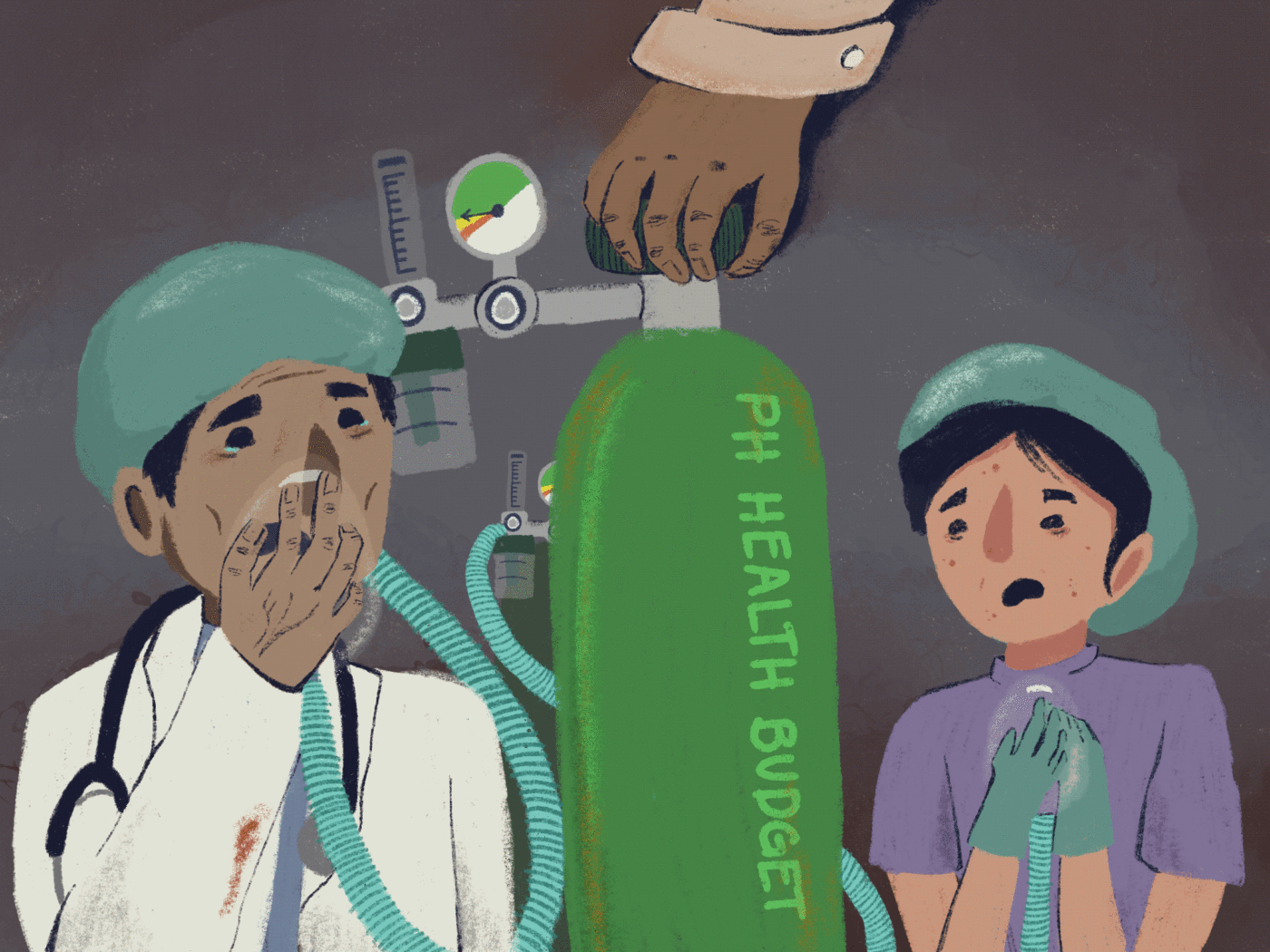IN A September 7 meeting between a group of doctors and the Inter-Agency Task Force for the Management of Emerging Infectious Diseases (IATF-EID), Presidential Spokesperson Harry Roque was caught on video berating medical professionals who were present. This led medical groups, healthcare workers, and ordinary Filipinos to demand Roque’s immediate apology and resignation for his actions.
Since the start of the pandemic, the lack of support for healthcare workers has been continuously highlighted. However, even before the pandemic, healthcare workers have led the fight for better remuneration through the proper implementation of laws that are meant to ensure their right to appropriate compensation.
In order for the healthcare system to thrive amid the pandemic and beyond, the government must heed the calls of healthcare workers and consider their perspectives when crafting future laws and policies.
In retrospect
Signed in 1992, the Magna Carta of Public Health Care Workers (RA 7305) supposedly ensures that healthcare workers are compensated with allowances such as hazard pay, longevity pay, and a higher salary grade.
However, its original intention has not been consistently fulfilled as it is unclear who should be shouldering the cost. While RA 7305 states that payment will depend on “LGU (Local Government Unit) Capacity,” a study conducted by the Philippine Institute of Development Studies reveals that there is no logic in holding LGUs responsible for funding due to the differences in budget allocation per locality.
The unequal funding and overdependence on LGUs has resulted in a gap in the benefits received by healthcare workers, resulting in discontent rather than empowerment.
To make matters worse, private health workers are not included in the scope of these laws. 2016 data by the Philippine Statistics Authority (PSA) indicate that out of the almost 140,000 Filipino health professionals in the private sector, 19,501 were not regularized. To address this issue, a Magna Carta for Private Health Care Workers (House Bill 05184) was proposed in 2019 and aimed to set the entry-level salary of private nurses at Php 30,000 per month. Authors of this bill hoped to provide similar benefits for private health workers who are not covered by RA 7305. The bill also seeked to prohibit contractualization and work overloading of healthcare workers.
As of writing, the bill has not been passed in the lower house.
Though these laws were proposed with the goal of protecting healthcare workers, the current pandemic situation has shown that there is an urgent need to review its execution.
Stuck in the status quo
With the aim of properly compensating healthcare workers, the Bayanihan To Heal as One Act or Bayanihan 1 and Bayanihan To Recover as One Act or Bayanihan 2 were successively passed by Congress in 2020. Under Bayanihan 2, healthcare workers are entitled to receive Special Risk Allowances (SRA) if they are exposed to COVID-19 patients. However, stringent requirements and qualifications have hindered the distribution of these benefits to medical frontliners.
While a third version of the Bayanihan law has been passed in the lower house, it remains pending at the Senate level. Once enacted into law, Bayanihan 3 is anticipated to continue the policy of giving healthcare workers their SRAs.
Amid mass walkouts in the health sector, President Rodrigo Duterte, on August 21, gave a 10-day deadline for the Department of Budget and Management and DOH to “use whatever money there is” to pay the healthcare workers their remaining allowances. This led to more frustration among healthcare workers who expressed indignation over the fact that it had to take an order from Duterte to release the funds.
As healthcare workers continue to assert their rights, there have been a number of medical workers who seek greener pastures abroad for better salaries and benefits. In the private sector, about five to 10 percent of workers have tendered their resignation. While they are well within their rights to do so, this exodus of workers may leave the healthcare system paralyzed with potential irreversible damages.
Since healthcare workers’ welfare is also dependent on these policies, these shortcomings expose the need for better communication with medical workers and improved policy implementation.
Open-minded approach
Benefits and just wages for healthcare workers must be given even after the pandemic in order for the healthcare system to be ready for the next health crisis. If the government continuously turns a blind eye to their lapses in the treatment of the country’s healthcare workers, a potential collapse of the healthcare system may happen.
Additionally, the government must be open to feedback and criticism from health workers and consult them when formulating policies related to the pandemic response. Doing so will foster a unified pandemic response that accounts for the needs of health workers, encouraging them to continue their service in the country.







